Do you end up with more okra than you can use at once? We definitely don't want any of that goodness to go to waste. Let's learn how to freeze okra properly to keep it on hand for your cooking anytime you want. And trust us, there's more than one way to freeze this hearty veggie.
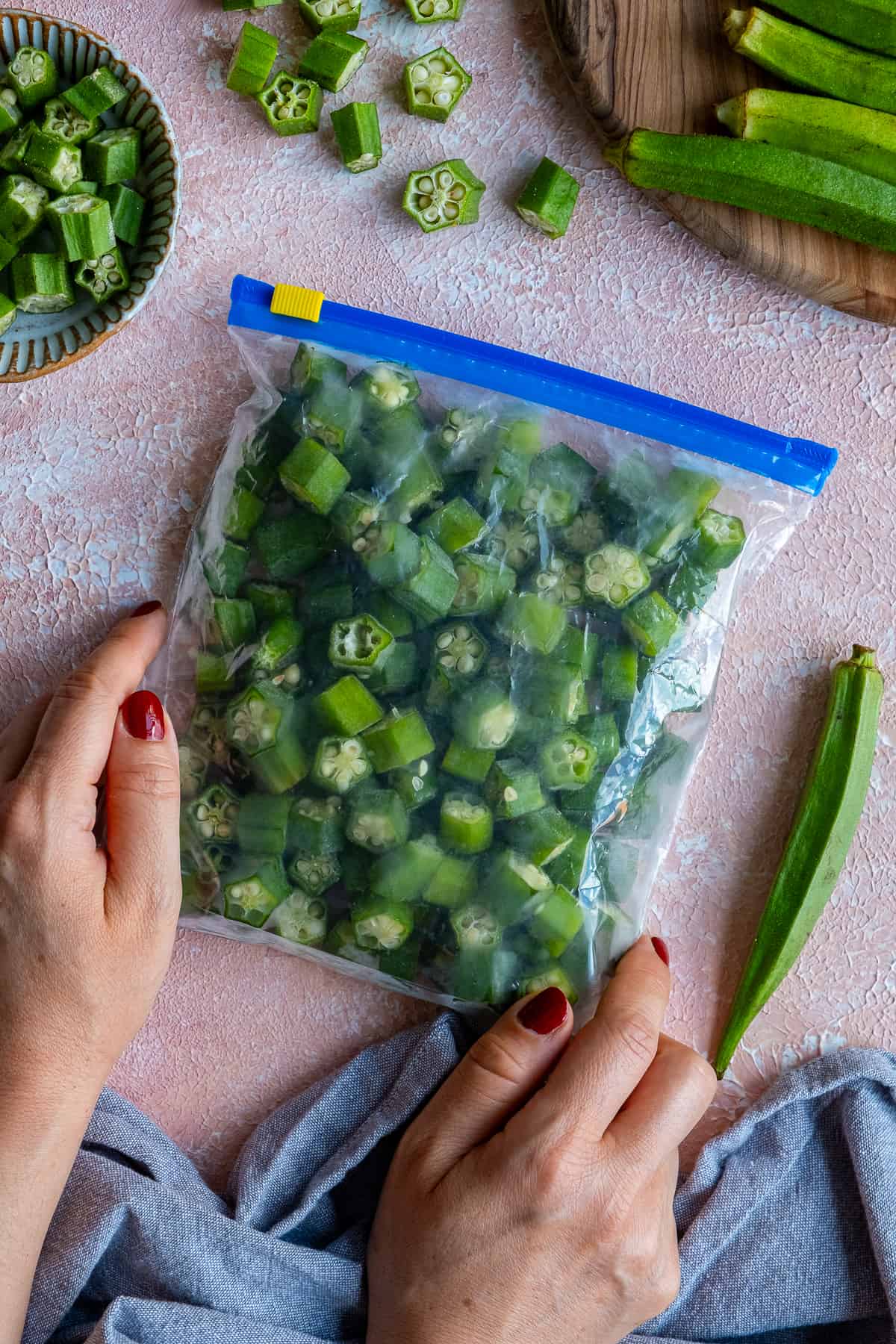
Okra is one of our favorite summer vegetables. We often make bamya for lunch or dinner and fried okra as a side dish. If you love okra recipes too and want to enjoy it all year round, keep reading!
In our guide today, we'll cover everything you need to know - from washing okra in a vinegar and water solution to prevent spoilage, to freezing okra with and without blanching, whole and sliced okra, and preparing frozen okra for frying.
Before moving onto the freezing part, let's talk about preparing our okra.
Jump to:
Preparing Okra For Freezing
Selecting okra
Choose high-quality okra. We want pods that are bright green, firm to the touch, and free from blemishes or discolorations. Remember, freezing won't improve the quality of okra, it only preserves it. So try to find the best fresh okra you can buy or pick the best ones from your garden.
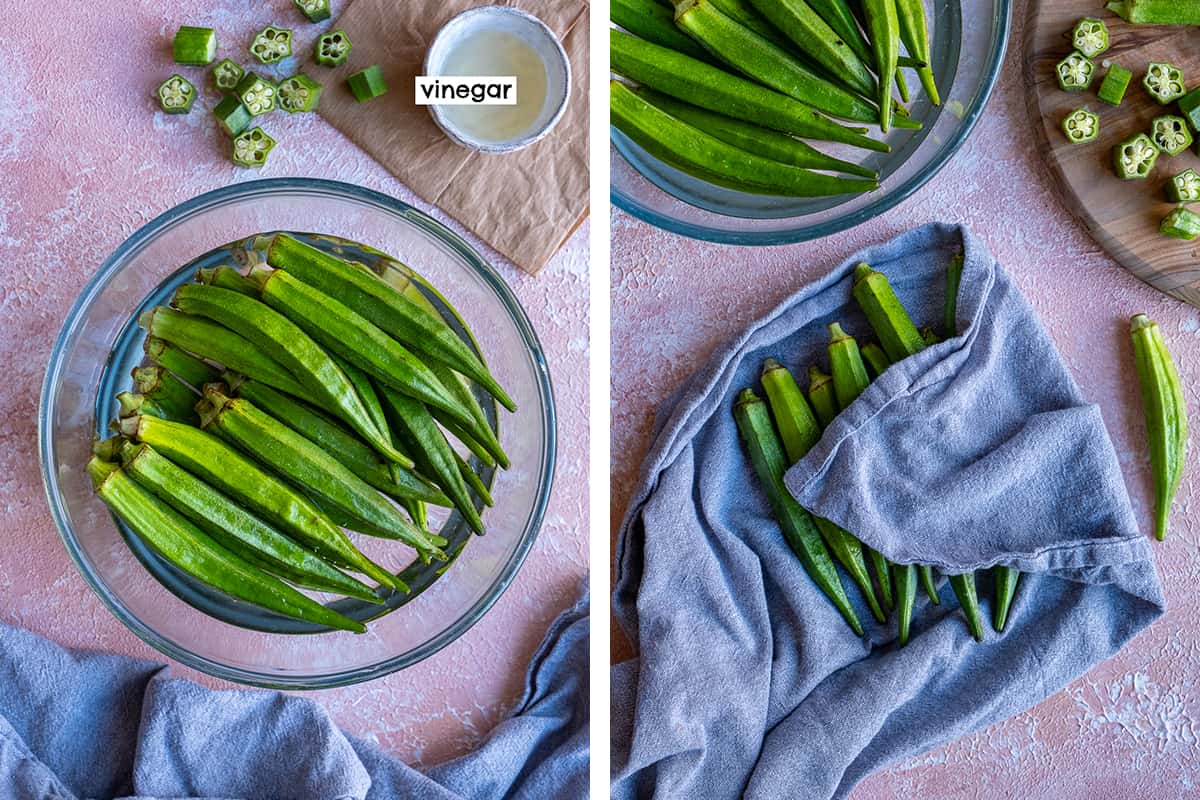
Washing okra in vinegar and water
Now, let's give our okra a good clean. Washing okra in a vinegar (white vinegar or apple cider vinegar) and water solution is a crucial step because it helps to remove any dirt, germs, and even pesticide residues. We suggest a ratio of one part vinegar to three parts water.
Put the okra in this solution and let it soak for about 5 minutes. After soaking, give the okra a good rinse with cool water to remove any lingering vinegar.
Patting okra dry
After washing, it's essential to pat the okra dry. So, take a clean towel or paper towel and gently pat the okra until it's dry.
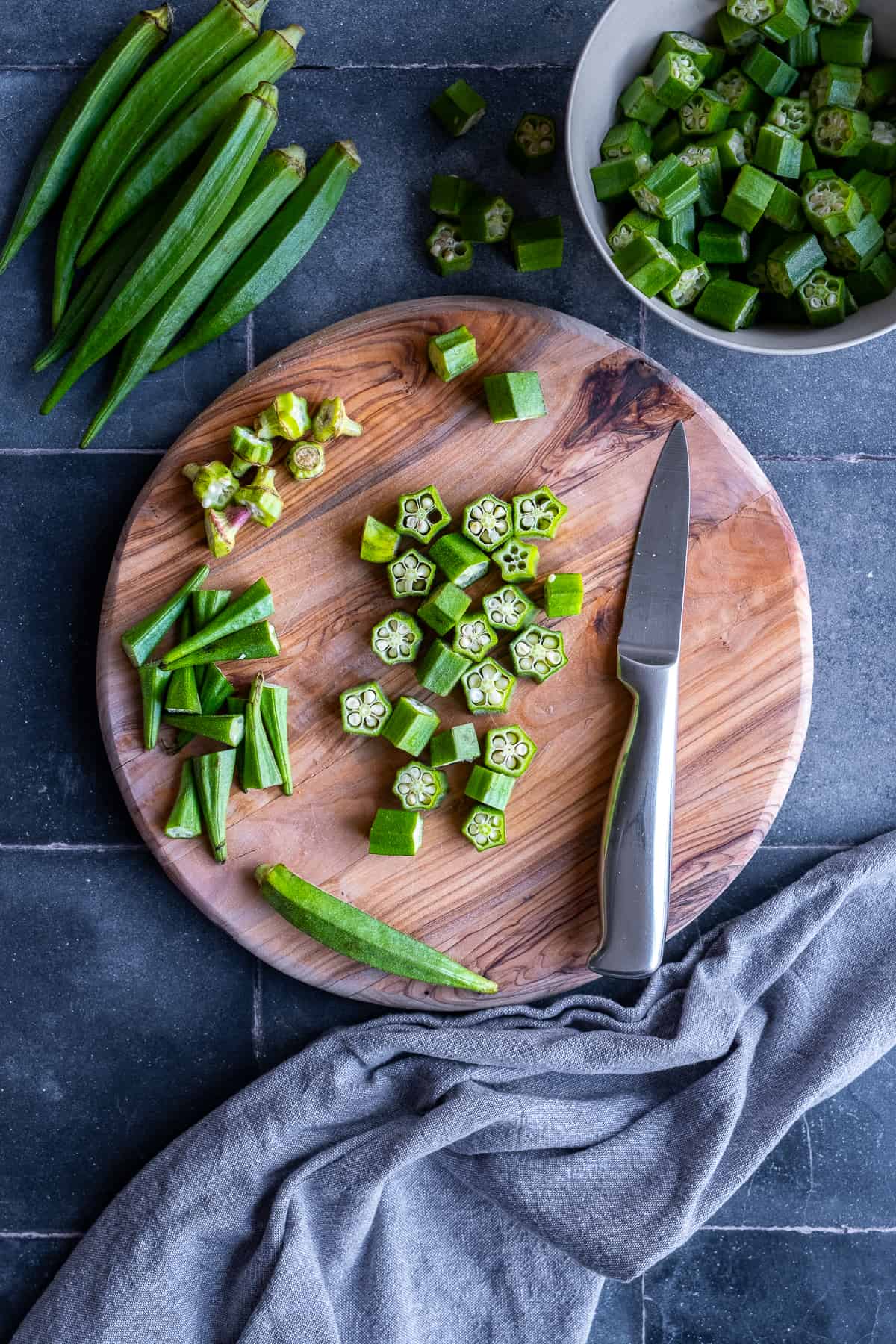
Chop Okra
If you don't know how to cut okra, follow these steps:
First, cut off the stems and tips (if you want) of each pod, then slice the okra into rounds that are about half an inch thick. The size doesn't have to be exact, but keeping the pieces roughly equal ensures that they'll freeze and thaw at the same rate.
Remember to handle the okra gently to minimize the release of the mucilage - that's the slimy substance inside the pod.
Alright, our okra is now prepared and ready for freezing!
Method 1: Blanching Okra
Blanching okra before freezing is beneficial. This method helps to preserve its vibrant color, retain nutrients, and maintain texture during freezing.
It also eliminates any bacteria or enzymes present, extending the okra's freezer life. Essentially, blanching offers a way to freeze okra while maintaining the highest possible quality.
Here's how we do it:
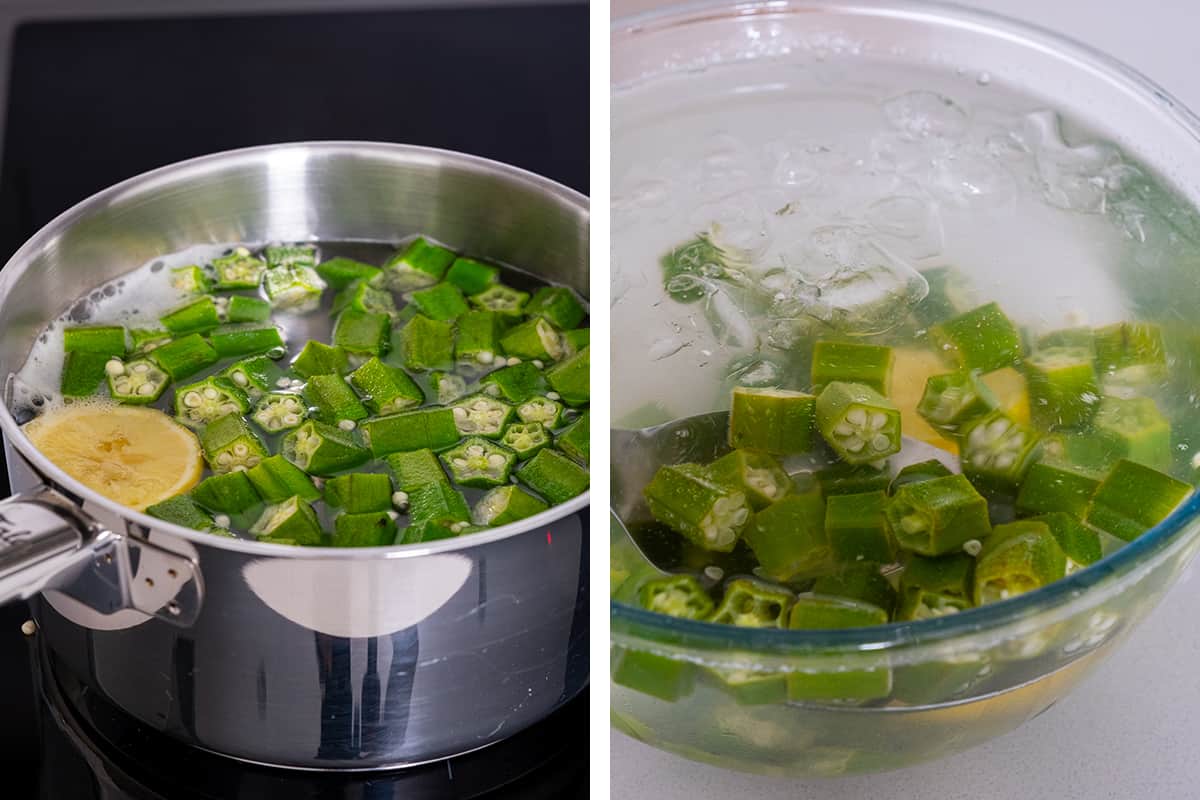
- Boil the Okra: First, we'll need to get a large pot of water boiling. Carefully add the cut okra into the boiling water. Boil them for 2 minutes. Remember, we're not trying to fully cook the okra, just give it a quick heat shock.
- Ice Bath: As soon as our okra has finished boiling, we're going to transfer it into a large bowl filled with ice water. This is called an ice bath, and it's going to stop the okra from cooking any further, preserving its texture and color. We'll leave the okra in the ice bath for 5 minutes and then drain.
- Dry the Okra: Spread the blanched okra out on a clean kitchen towel or paper towels and gently pat it dry.
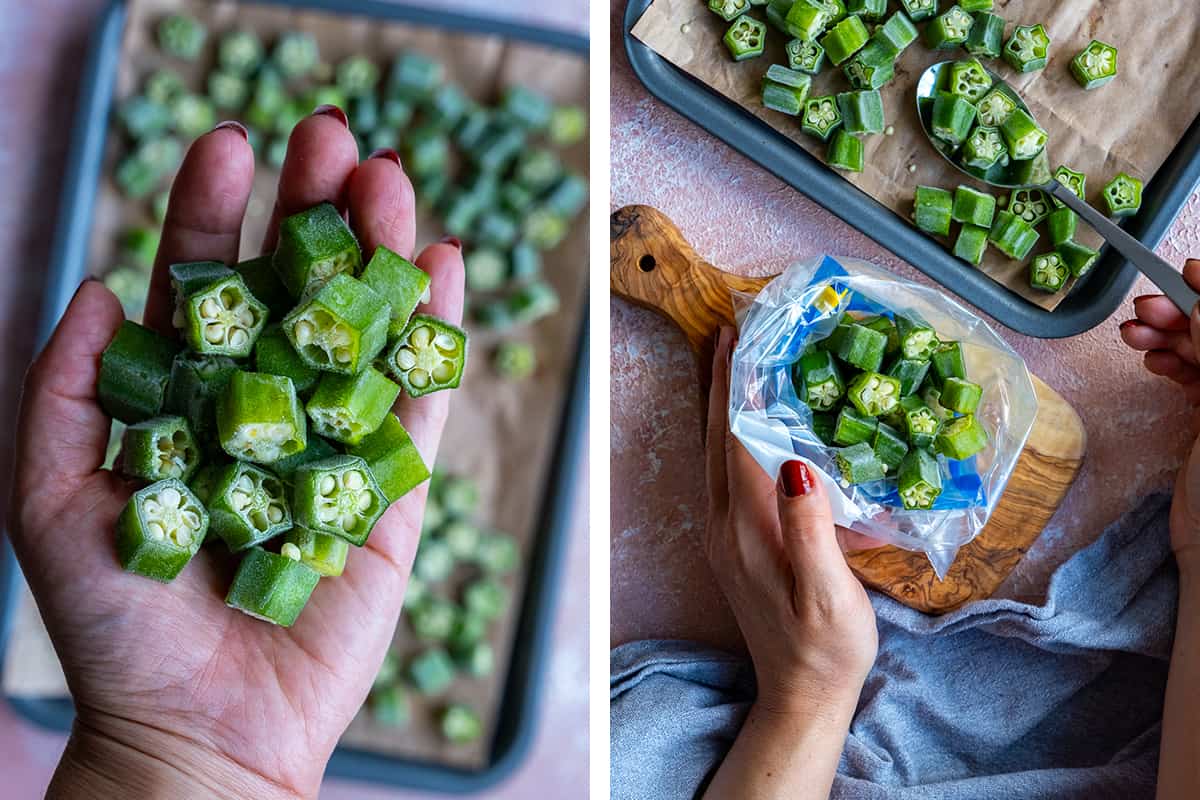
- Freeze the Okra: Now spread them out on a baking sheet lined with parchment paper. Try to make sure the okra pieces aren't touching each other, which helps to prevent them from sticking together. Then, flash freeze it by putting the baking sheet in the freezer and letting it sit there for about 2 hours. This ensures that our okra freezes individually and not in a big clump.
- Store the Okra: Once our okra is individually frozen, it's time to pack them up for long-term storage. Transfer the okra into reusable freezer bags. Remember to press out as much air as possible before sealing the bags. Then, Place the bags back in the freezer. Use a vacuum sealer if you have one.
Tip: For an alternative to blanching, you can try a quick oven cook. Preheat your oven to 300 F / 150 C. Arrange prepared okra on a baking sheet. Cook for just 3-4 minutes — we're not fully cooking it, just giving it a quick heat treatment. Let the okra cool completely, then transfer directly into freezer bags.
Method 2: Freezing without Blanching
Alright, now let's talk about freezing okra without blanching. This method is perfect if we're in a bit of a rush or simply prefer a quicker process.
Keep in mind, skipping the blanching step might lead to a slightly different texture once thawed, but it's still a perfectly good way to freeze okra. Here's how we do it:
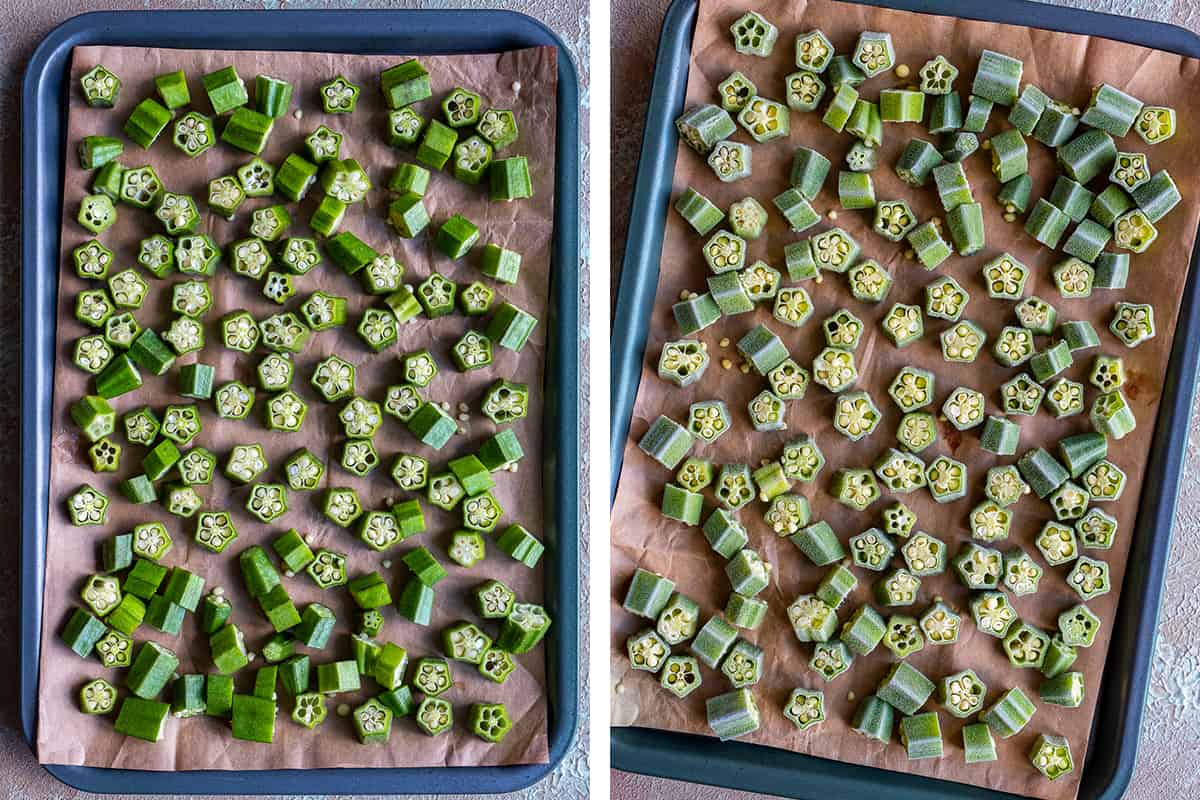
- Prepare the Okra: Just like in the blanching method, start by washing our okra in a vinegar and water solution, patting it dry, and cutting it into rounds (unless we've chosen to freeze our okra whole).
- Freeze the Okra: Now, instead of blanching, we're going to move straight to the freezing step. Spread out the okra rounds on a baking sheet lined with parchment paper, ensuring they're not touching each other, and put the sheet into the freezer. Let it sit there for 2-3 hours.
- Store the Okra: Once the okra is individually frozen, transfer it into freezer bags. Just like before, try to remove as much air as possible from the bags before sealing.
Method 3: Freezing Whole Okra
Freezing whole okra is a fantastic option if we plan on using it in dishes that require whole pods. However, when it comes to freezing whole okra, blanching is a crucial step that we can't skip.
Why? Without blanching, whole okra pods can become mushy once thawed. Blanching, with its quick heat and cool down process, helps to keep the pods firm and fresh, preventing that mushiness.
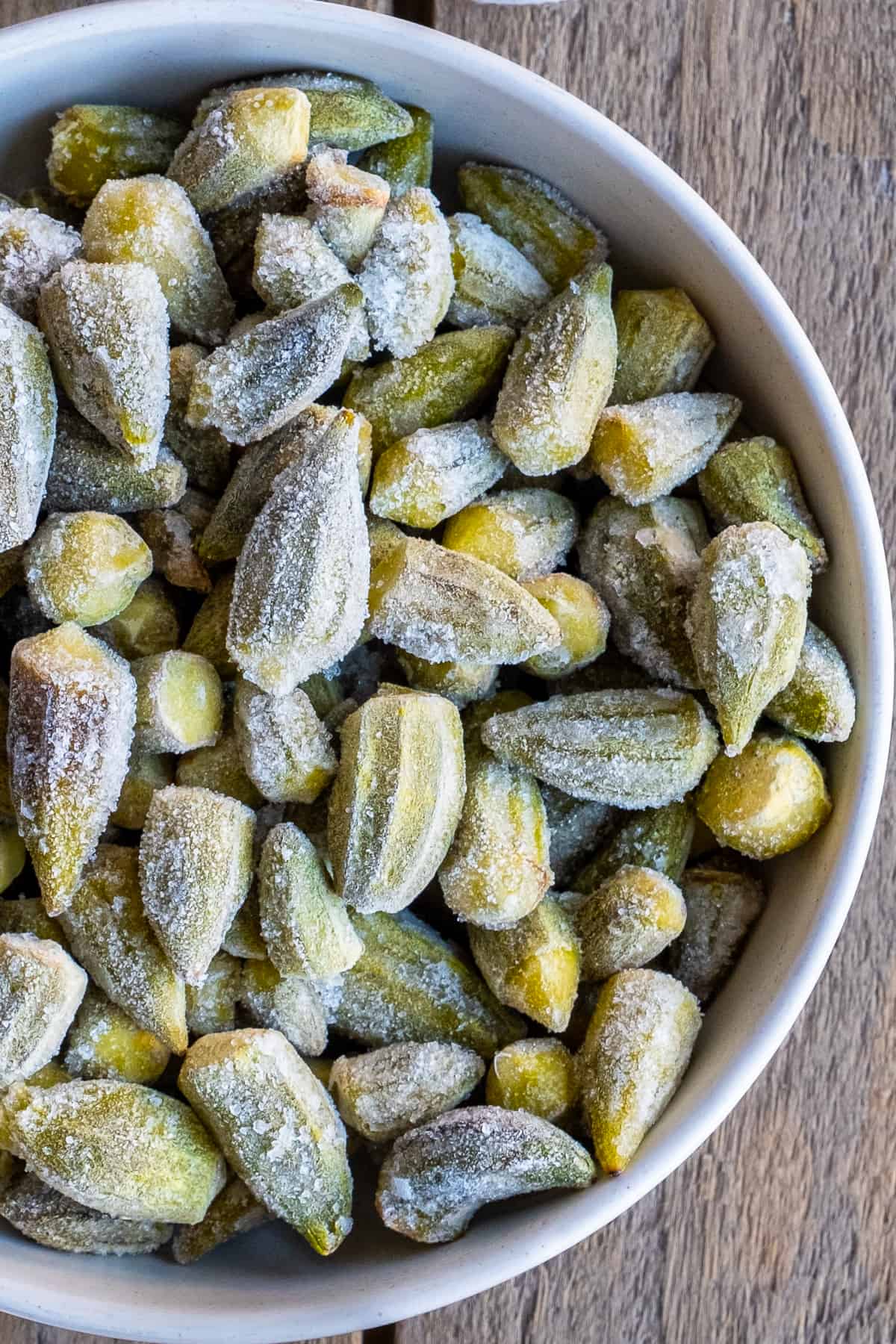
Here's how we do it:
- Prepare the Okra: Wash the okra in a vinegar and water solution, then pat it dry. Now, just cut the stem off keep the okra whole this time!
- Blanch the Okra: Add the whole okra pods into boiling water. Let small pods boil uncovered for 3 minutes and larger pods for 4 minutes. Immediately transfer the okra with a slotted spoon into a bowl of ice water to stop the cooking process. Let them sit there 5-10 minutes.
- Dry and Freeze the Okra: After the okra is completely cooled, dry it to avoid any freezer burn. Then lay out the whole okra pods on a baking sheet lined with parchment paper and send it off to the freezer for 2-3 hours.
- Store the Okra: Finally, transfer the individually frozen pods into freezer bags, squeezing out as much air as possible before sealing them up.
- Use the Frozen Whole Okra: You can use them to make air fried frozen okra.
Pro Tip: Before blanching, separate your okra into small and large pods. Different sizes require different blanching times. By separating them, you'll avoid overcooking smaller pods or undercooking larger ones. Blanch in separate batches for best results. It's a quick trick to ensure perfectly blanched okra, no matter the size.
Method 4: Freezing Okra For Frying
If you are planning to make fried okra, freezing prepped okra ahead of time can make the cooking process even easier.
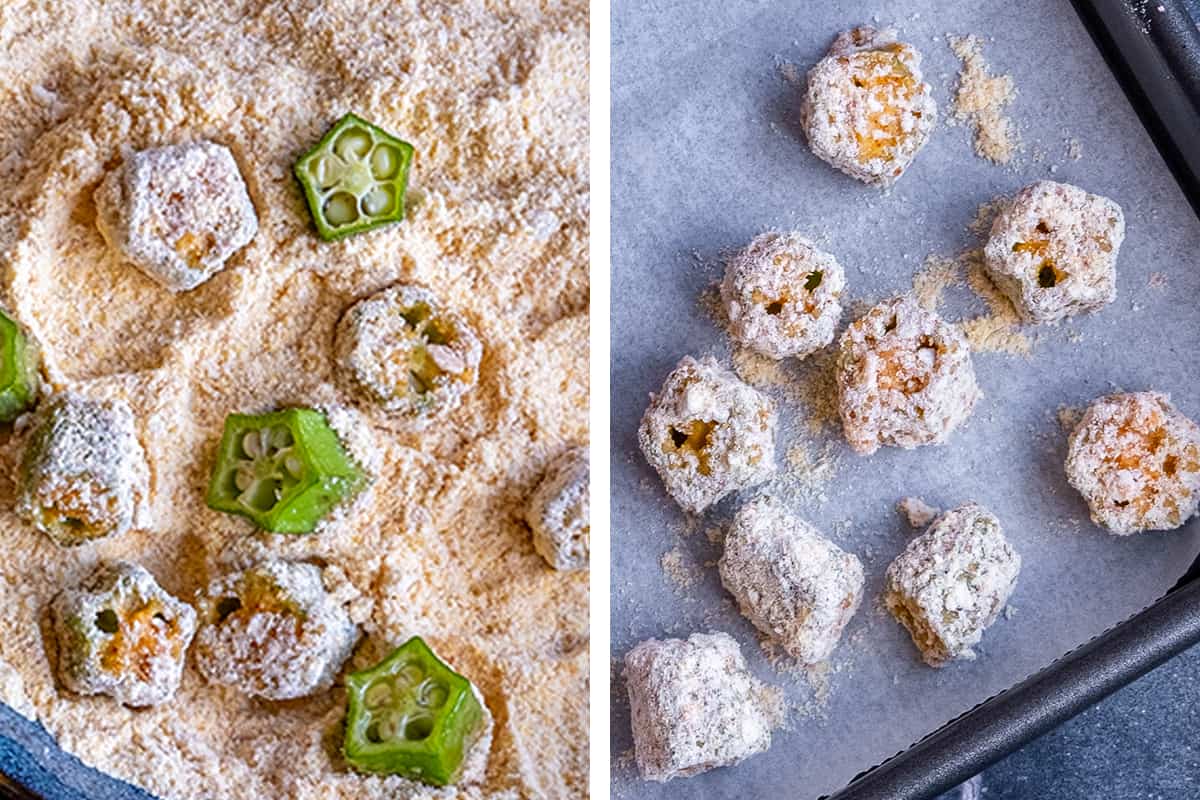
Here's how to put up okra specifically for frying:
- Prepare the Okra: After washing the okra in a vinegar and water solution, pat it dry and cut it into rounds.
- Blanch the Okra: Follow the usual blanching process, boiling the okra rounds for 2 minutes and then quickly cooling them in an ice bath for 5 minutes. Transfer them into a colander to drain.
- Dredge the Okra: Now dredge them in a mixture of equal parts of flour and cornmeal (or cornmeal only), and your favorite seasonings. We use salt, pepper, paprika and garlic powder. This pre-coating will make the frying process even easier later on.
- Freeze the Okra: Next, spread the coated okra rounds in a single layer on a baking sheet lined with parchment paper, ensuring they're not touching each other. Then, into the freezer they go for about 2 hours until frozen.
- Store the Okra: Once they are frozen, transfer the breaded okra into freezer bags, seal the bags and and store in the freezer.
Blanching vs. No Blanching
The method we choose for freezing okra -- blanching or not blanching -- largely depends on our personal preferences and how we plan to use the okra later.
Blanching:
Blanching okra before freezing involves a little more prep work, but it also offers some significant benefits. It helps to preserve the color, texture, fresh taste and nutritional value of the okra.
If we plan on using the okra in dishes where its texture is important, or if we're freezing whole pods, blanching is our preferred method.
No Blanching:
The no-blanching method is the easiest way to freeze okra. It skips the step of boiling and cooling the okra. If we're in a rush, this method will get our okra into the freezer faster.
However, the okra may undergo changes in texture, and flavor during freezing and thawing. If we're using the okra in stews, soups, or other dishes where these changes are less noticeable, or if we're freezing okra rounds, the no-blanching method can work just fine. We don't prefer freezing whole okra without blanching.
Using Frozen Okra
One great thing about frozen okra is that you usually don't need to thaw it before using. It can go straight from the freezer into your cooking pot. Here's how we can easily use each type of frozen okra:
- Frozen Sliced Okra: Frozen sliced okra is perfect for dishes that require less cooking time. It's ideal for soups, stews or casseroles. Since the pieces are small, they thaw and cook quickly. They are also great to make roasted okra.
- Frozen Whole Okra: Whole frozen okra is great for dishes where we want the okra to remain intact, such as stuffed okra recipes. It can also be used for making whole fried okra or okra stew. It might take a bit longer to cook than sliced okra, so we usually add it to dishes that have a longer cooking time.
- Frozen Breaded Okra: If you freeze okra to fry, it's as simple as heating up some oil and frying the okra until it's golden and crispy. No need to thaw first! You can even make your breaded fried okra in air fryer!
FAQs
Generally, you don't need to thaw frozen okra before cooking. You can add it directly to most dishes like stews, soups, and curries.
Blanching okra before freezing helps preserve its color, texture, and flavor. It also slows down the enzyme actions which can cause loss of flavor and nutritional value.
Yes, you can freeze okra without blanching. However, the texture and color may be affected over time. This method is quicker and works fine for recipes where these changes are less noticeable.
Frozen okra can stay fresh in the freezer for up to 12 months. While it's safe to eat beyond that point, the quality may start to decline.
Yes, you can freeze whole okra pods. However, it's best to blanch them first to prevent them from getting mushy when thawed.
Yes, you can eat freezer burned okra. Freezer burn doesn't make the food unsafe to eat, but it may affect its taste and texture.
If it has a strange smell, discoloration, or if it is extremely dry and covered with ice crystals (indicating severe freezer burn), it might be best to discard it. While it may still be safe to eat, the quality and taste might be compromised.
More Okra Recipes
More How To Tutorials
Recommended
As always: If you make this recipe, let us know what you think by rating it and leaving a comment below. And post a pic on Instagram too—tag @give_recipe so we can see!
Sign up for the FREE GiveRecipe Newsletter to get the new recipes into your inbox! And stay in touch with us on Facebook, Pinterest, YouTube and Instagram for all the latest updates.
📖 Recipe
How To Freeze Okra
Learn how to freeze okra with this straightforward guide! Explore different methods including blanching and non-blanching techniques, as well as how to prepare okra for frying. Enjoy the flexibility of having frozen okra on hand for a range of delicious dishes, any time of the year.
- Prep Time: 15 minutes
- Cook Time: 2 minutes
- Total Time: 17 minutes
- Yield: 4
- Category: Side Dish
- Method: Freezing
- Cuisine: American
Ingredients
- Fresh okra
For cleaning okra (a ratio of one part vinegar to three parts water):
- white vinegar (or apple cider vinegar)
- water
You will also need:
- Ice
- Sheet pan that fits in the freezer
- Resealable freezer bags
Instructions
- Choose the best okra: Look for fresh okra that's firm, unblemished, and bright green.
- Clean your okra: Soak it in a mixture of one part vinegar to three parts water to remove any dirt or bugs. Rinse under cool water afterwards.
- Pat your okra dry: Dry okra thoroughly with clean towels.
- Decide how you'll freeze your okra: You can leave it whole, slice it into rounds, or bread it for frying.
For Whole Okra or Sliced Okra:
- Blanch your okra: Put the cleaned okra in boiling water. Boil the sliced okra for 2 minutes, small whole pods for 3 minutes and large whole pods for 4 minutes. Then quickly cool it in an ice bath (a bowl of water and ice) for 5 minutes and drain in a colander. Spread the blanched okra out on a clean kitchen towel or paper towels and gently pat it dry.
- Freeze your okra: Place okra on a parchment-lined baking sheet and freeze for 2 hours.
- Store your okra: Transfer frozen okra to freezer bags. Squeeze out the air and seal.
For Fried Okra:
- Dredge your okra. After blanching and drying, coat okra rounds in your choice of breading. We recommend cornmeal or a mixture of equal parts of flour and cornmeal seasoned with salt, pepper and paprika.
- Freeze your okra: Freeze it on a parchment-lined sheet and freeze for 2 hours. Then transfer it into freezer bags and put up your okra.
For No-Blanch Method:
- Freeze your okra. Instead of blanching, place sliced okra directly onto the baking sheet and freeze for 2-3 hours. Then transfer into freezer bags and store in the freezer.
Notes
- Size Matters: Before blanching, sort your okra by size. Small and large pods have different blanching times, so separating them will ensure each piece is perfectly blanched.
- Alternative to Blanching: If you prefer, you can cook okra in a preheated oven at 300°F for 3-4 minutes, similar to blanching. Let it cool before transferring to freezer bags.
- Blanching vs. No-Blanch: Blanching helps maintain color, texture, and flavor during freezing and thawing. No-blanch is quicker and works fine for recipes where these changes are less noticeable.
- Storage: Frozen okra can stay fresh in the freezer for up to 12 months. While it's safe to eat beyond that point, the quality may start to decline. Always label your freezer bags with the date to keep track of how long it's been stored.
- No Thawing: You can use your frozen okra directly in most recipes, no need to thaw.
Nutrition
- Serving Size:
- Calories: 37
- Sugar: 1.7 g
- Sodium: 7.9 mg
- Fat: 0.2 g
- Carbohydrates: 8.4 g
- Fiber: 3.6 g
- Protein: 2.2 g
- Cholesterol: 0 mg


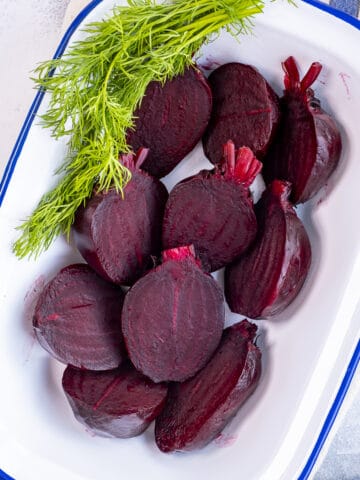
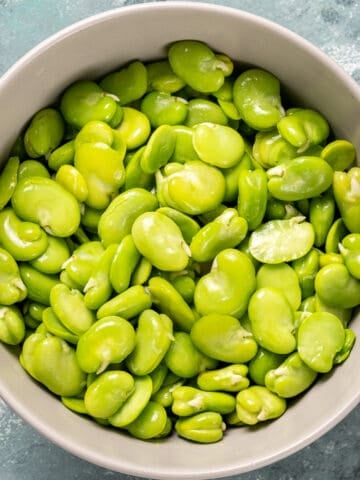
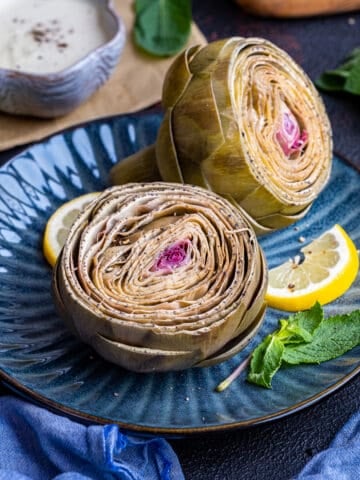

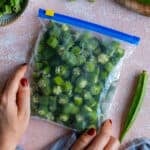
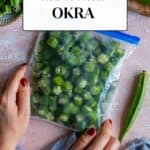
Lydia Hubbell says
Glad to know the “oven blanching” method!